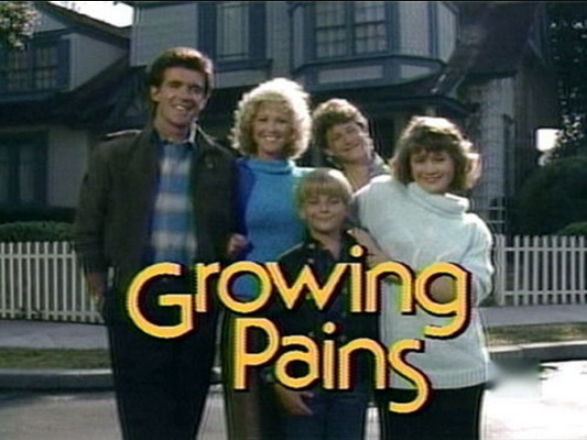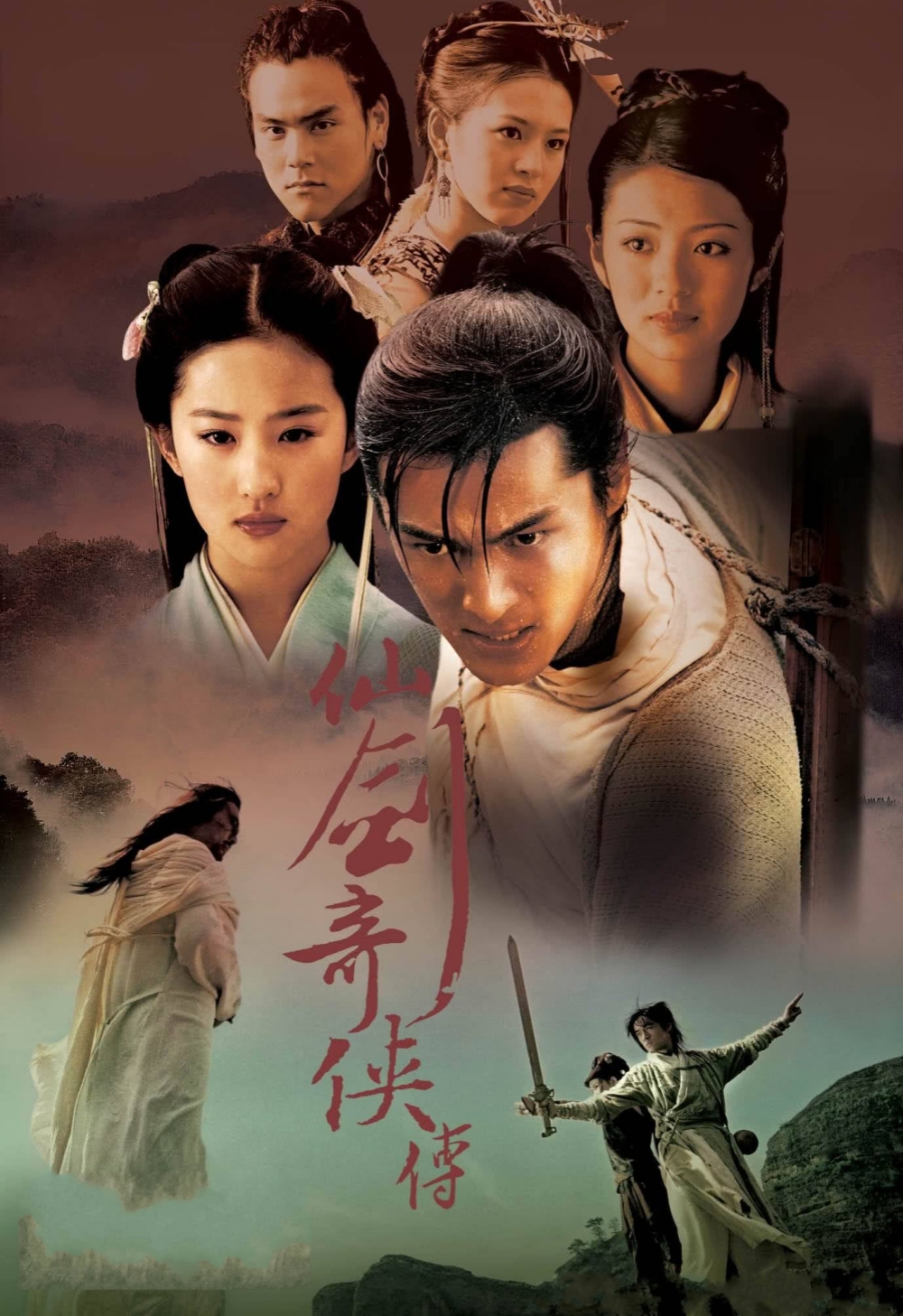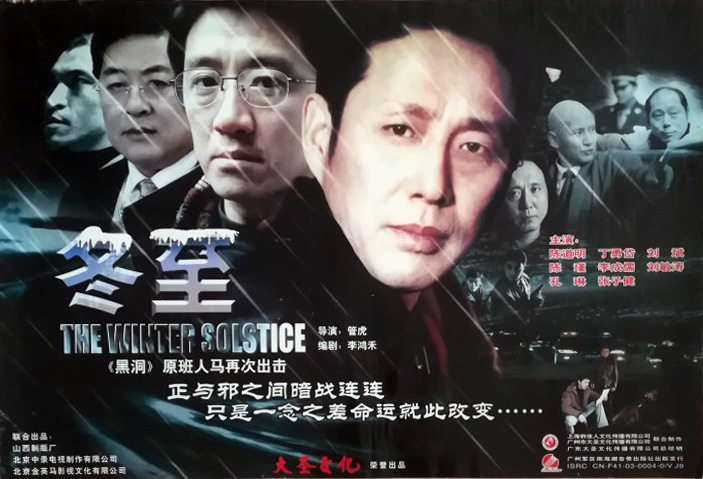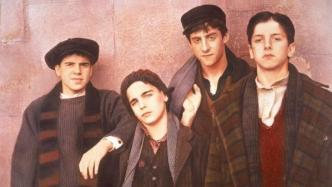
Editor's note: This is a nostalgic theater.
Before we knew it, Once Upon a Time in America has been released for 40 years.
Although the film did not receive good reviews and box office when it premiered in Boston in 1984, it became a classic in the following years. After 2010, some of the originally deleted scenes were restored, increasing the length of the film from 229 minutes to 251 minutes, allowing moviegoers to appreciate the director's overall artistic conception more, and the value of the film was also raised to a new level.
This slow-paced film, which lasts more than four hours, no longer meets the aesthetic tastes of the audience in the trend of short videos. But today it is still among the top 100 most popular films on Douban, and it will not lose its quality as time goes by, and will always stand in the long river of film history.
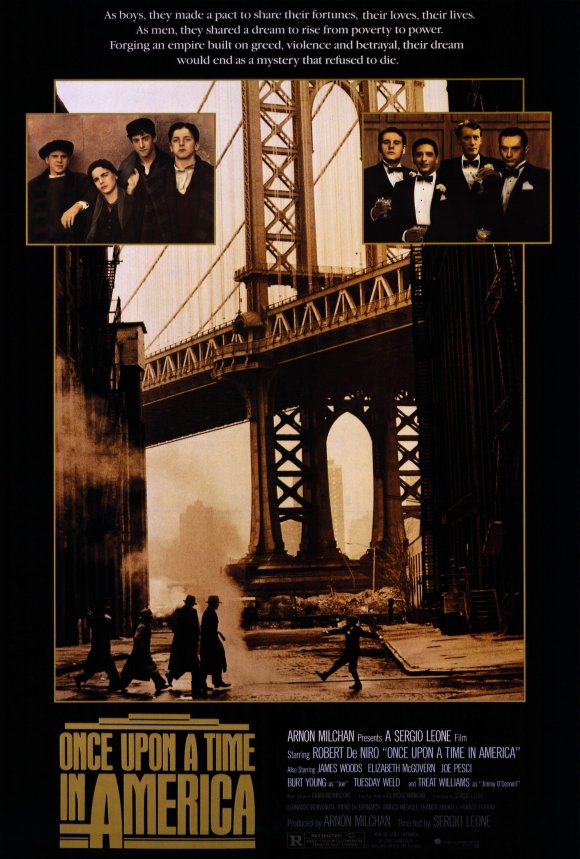
Once Upon a Time in America poster
Italian director Sergio Leone started as an assistant director and directed only seven films independently in his 40-year film career. After coming to Hollywood, he first plagiarized Kurosawa's stories and shot three "Dollar" westerns, which were commercially successful. He then released "Once Upon a Time in the West", "Once Upon a Time in America", and "Once Upon a Time in America", the "American (Historical) Trilogy". "Once Upon a Time in America" was the last film he directed in his life and also his most acclaimed work.
Today, Sergio Leone is generally regarded as an underrated master. Although he did not receive much favor from film festivals during his lifetime, his artistic style was unique and he had more than just a brief commercial success.
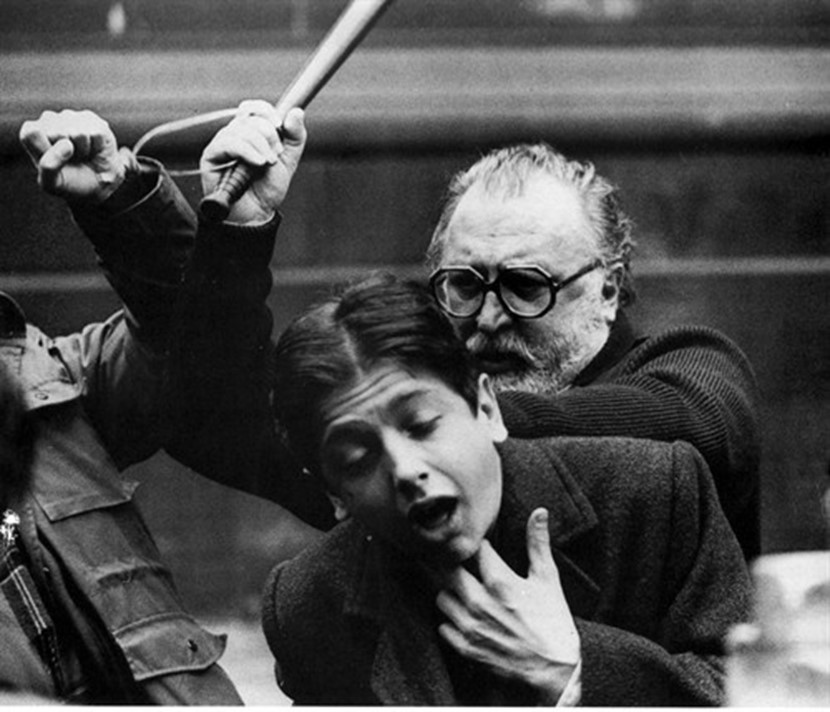
The old man directs the actors of Once Upon a Time in America on the set. It is said that he once turned down the opportunity to direct The Godfather.
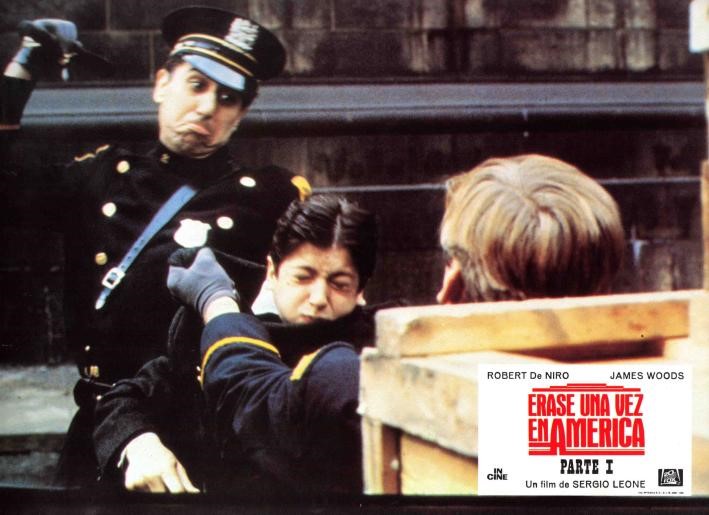
Stills from Once Upon a Time in America
From a genre perspective, Once Upon a Time in America is a standard gangster crime film. The story describes how a few young people rose to prominence in the black market under the prohibition of alcohol in the 1930s, and most of them ended up dead on the streets. In 1968, the protagonist "Noodles", who was over 60 years old, survived and re-examined the truth of what happened back then against the background of the overall "anti-union gangster" society.
The film has three time lines: "Noodles"'s reckless adolescence, in which he and his friends gradually embarked on the road of crime; the youthful years when several of them were full of vigor and vitality, but in the end they did not have a good ending; in his later years, the protagonist has gradually distanced himself from gang life, and revisits old friends, summing up his gains and losses in life.
This story spans several decades and is roughly the length of The Godfather trilogy.
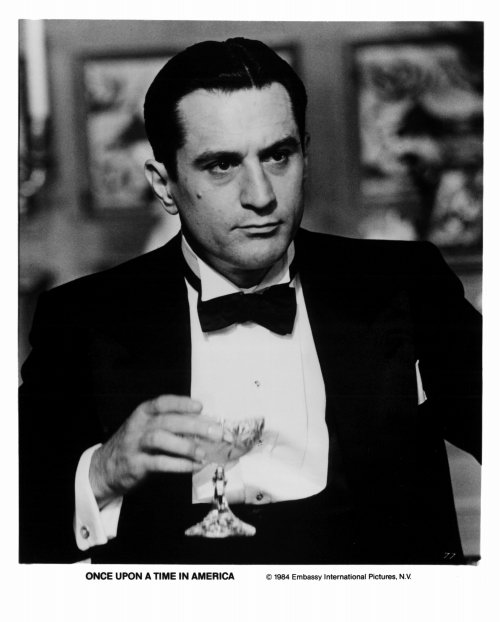
The film starred Robert De Niro, who was 40 years old at the time. His acting in the film, which spanned 30 years, was amazing.
In the eyes of the younger generation, for example, the character in "Barbie" started to complain, saying that "old men like to watch "The Godfather", and "The Godfather" has probably become a zombie-like "male cultural symbol". But in 1972 when the film was first released, it was so trendy and fashionable that the gangsters in the United States were learning how to dress and talk in the film, shaping themselves into "imaginary upper class". "The Godfather" pioneered a kind of "gangster culture", like a successful brainwashing advertisement, creating "what men should be like".
Twelve years later, when "Once Upon a Time in America" also appeared on the gangster film track, what did it do to stand on equal footing with "The Godfather"?
It is not imitation, but another new artistic innovation.
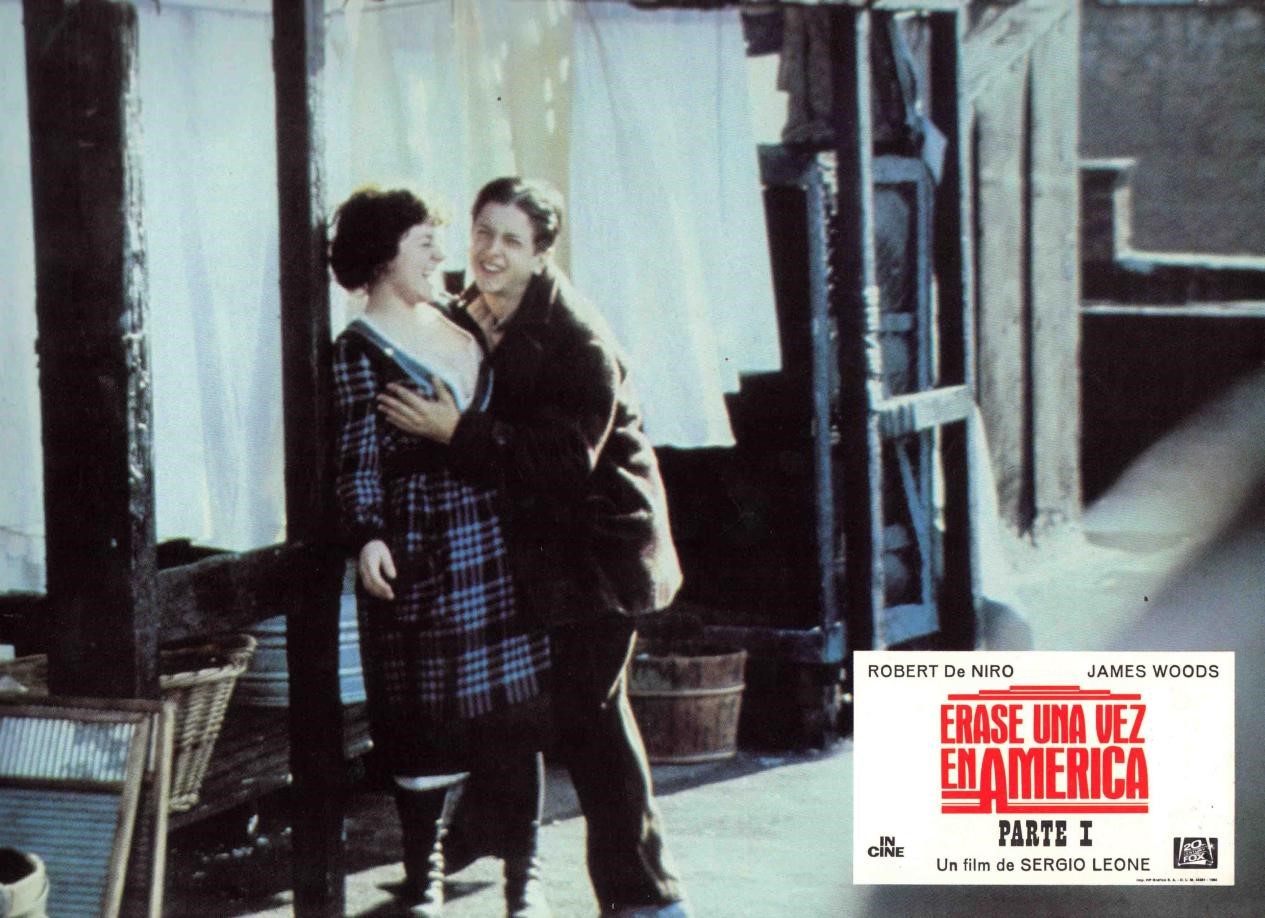
The film has a rather vulgar restoration of the texture of life, but at the same time it is full of poetry.
If "The Godfather" has improved the aesthetic taste of the lower-class audiences and made them actively learn the tone and style in the film, then the characters in "Once Upon a Time in America" do not need to learn at all. They rob and kill people, spend their days drinking and having sex with women, and even betrayal and estrangement between brothers are crime dramas that will be staged in real life. The film does not beautify the characters' morals and ideals at all. Even the protagonist "Noodles"'s behavior is more disgusting and real than that of "The Godfather", enough to be put on death row by today's female audiences.
But these days soaked in blood and tears seem to have another meaning in the movie.
The gang boss's tortuous and turbulent rise and fall history was made into a CCTV news documentary, which is educational material to warn the world; it was written into a self-media public account with paid reading, which is a popular story of street literature and gossip; but when written in the form of poetry, it is a philosophy of life in a certain sense, and it sees through the truth of life.
I have been ambitious in my life, and I have gained some, but I have also lost a lot. When I look back at my old age, I find that I have nothing. Everything I once had is just a dreamlike bubble that will eventually pass away. Although the life of a gangster is a crime, for life, the ups and downs, the difference between gratitude and revenge, are the Buddhist teachings for seeing through the world.
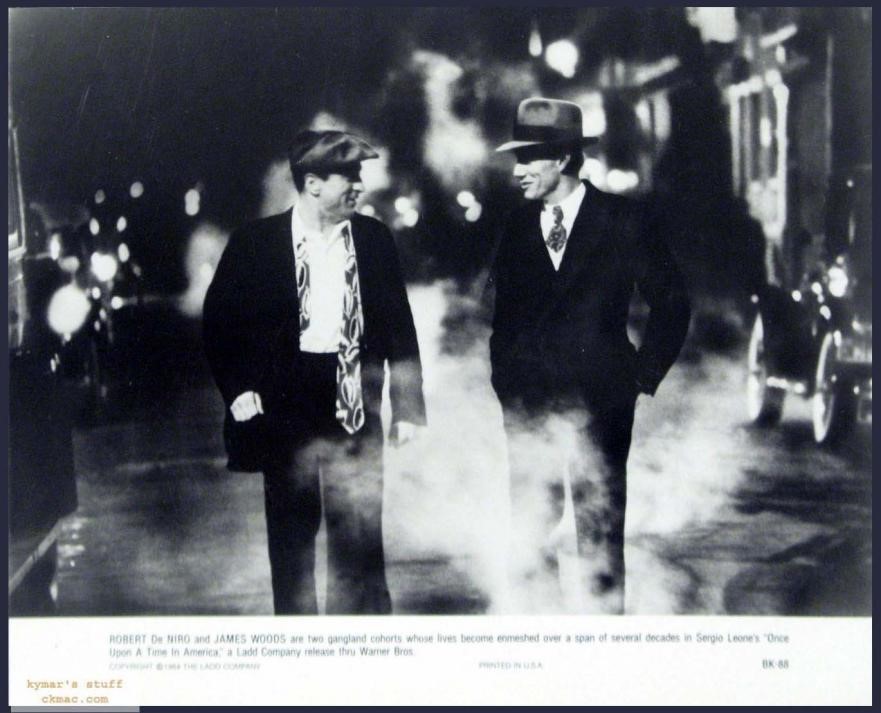
The many changes in mirrors, smoke, light and shadow that appear in the film are like the characters' jumping thoughts, enhancing the film's dreamlike temperament.
Once Upon a Time in America is not a very popular film in terms of narrative. It captures some fragments of the protagonist's life. In the 229-minute deleted version, the plot sometimes develops abruptly, as if some parts are inexplicably lost in the middle; in the 251-minute restored version, the problem has been solved to a certain extent - these jumping plots still have a sense of frustration, but the connection between the paragraphs is more organically connected because of the use of film montage techniques.
It reminds me of stream-of-consciousness novels like "Remembrance of Things Past". Sometimes, a burst of laughter from the roadside, the light and shadow of the sun shining through the shade of the trees, and the aroma of food wafting from somewhere will instantly make people feel trance and return to the carefree youth decades ago.
When people are young, they don’t understand the length of life. Only when they reach a certain age, they will remember many things that happened to them, some of which have long-term significance, while others are just the momentary atmosphere and joy of the day. The film may select the most important moments for the protagonist to look back on, so the narrative will not be too full.
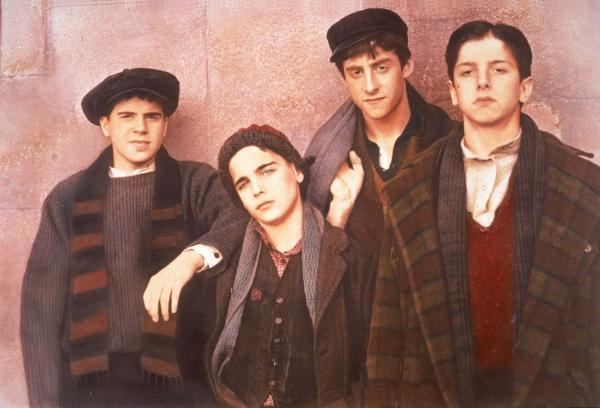
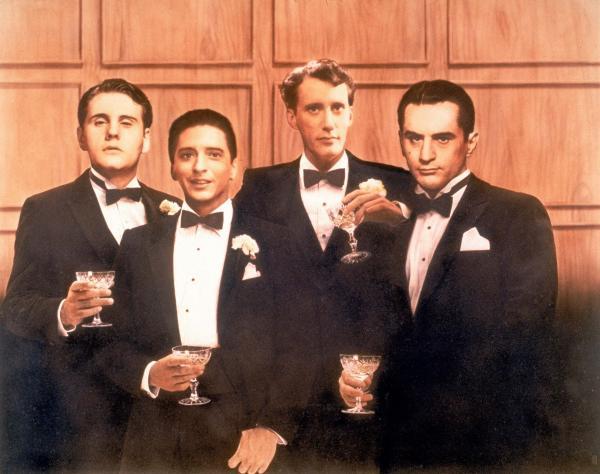
In the group photo of people, we can see the changes, which are the traces left to us by time.
In the film, the audience can clearly see the changes and growth trajectory of "Noodles". Especially for male audiences, there are some particularly real and cruel parts that make people feel uncomfortable.
The core is the slightly beautified "brotherhood". This simple emotion is that teenagers play together without restraint, go to jail without hesitation to avenge their friends, and after being released from prison, they find that their friends still share the profits fairly with them. Although there are fierce quarrels in business, they can laugh and have fun immediately without leaving any grudges in their hearts.
In the adult world, these wonderful things, the "lifelong friends" we look forward to, are almost impossible to happen to the same person continuously.
In the film, Noodles is eventually betrayed by his good brother Max, for reasons that are somewhat vague. But thirty years later, when Max has become an old man and knows he has nowhere to escape, he still hopes that Noodles will send him off, and there is a special feeling here. And because of this feeling, Noodles chooses to let it go and not seek revenge on Max.
In John Woo's films, the loss of "morality" must be repaid with blood debt, even for brothers. But in "Once Upon a Time in America", it is not "morality" that spans decades, but the days we once walked together and the memories left behind. Nothing else matters. In the end, you and I still have a place in our hearts for each other.
In the adult world, "people" often represent interests and numbers. Only when you grow old enough will you realize that the value of "people" is "people" themselves. When you betray friendship, it seems that there is no need to delve into the reasons. You can only say "let it be" when you meet again in the future.
The elderly "noodles" are relieved and don't talk about right or wrong or debts. All they talk about is letting go, saying goodbye to the other party, and reconciling with themselves.
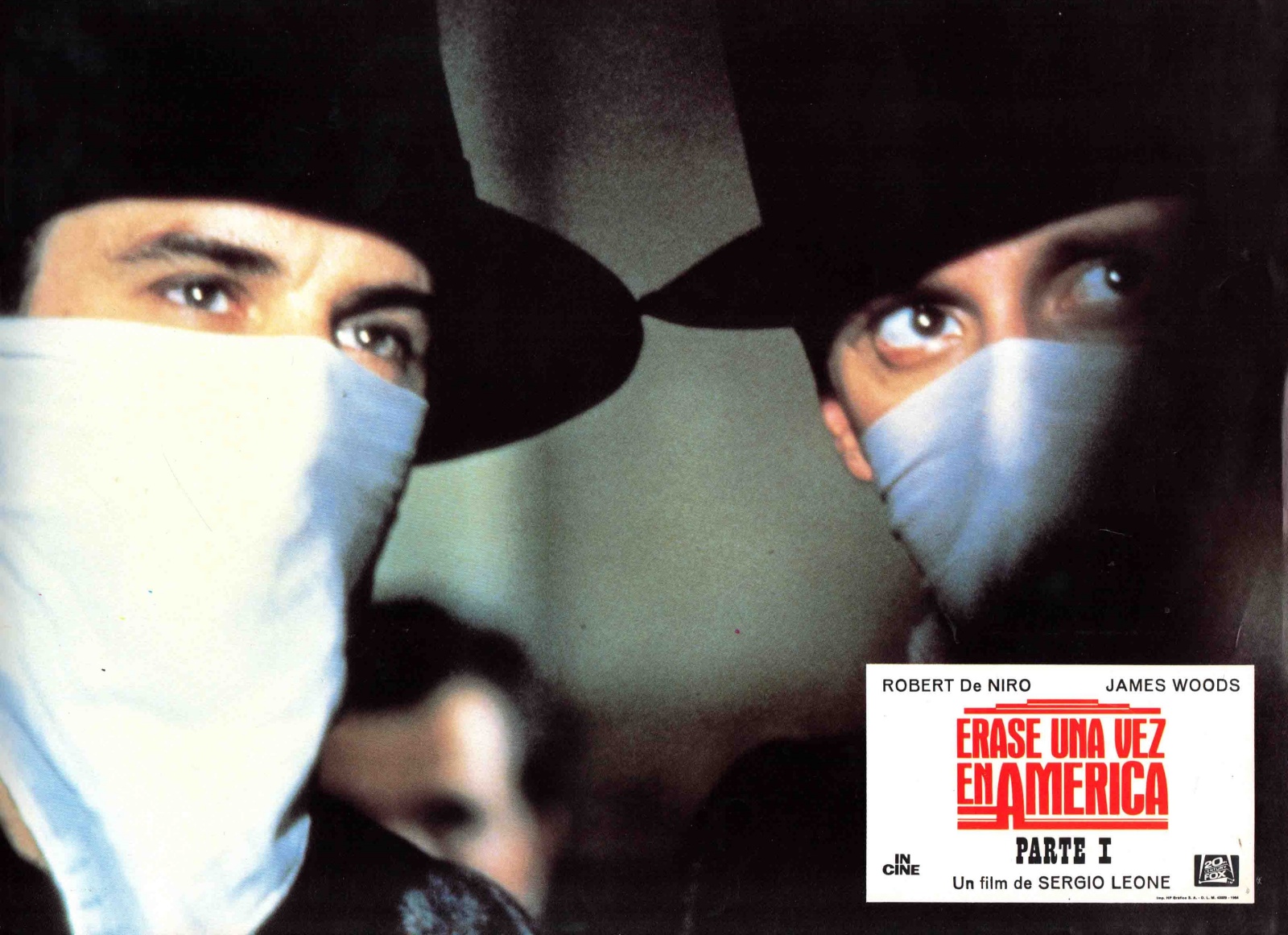
Brothers turning against each other is a common plot in many gangster movies. The surprise of this movie is that even if you turn against each other, I won’t shoot you.
Love also played an important role in Noodles' life. When he was a teenager, he had the opportunity to have a good relationship with a girl. They even read religious scriptures together, which was a sacred union. But because he was blocked by his enemies at the street corner and beaten up, this opportunity was fleeting. After he was released from prison, he wanted to love the girl well, but the girl still looked down on his future in society and wanted to go to Hollywood. In anger, Noodles raped her in the back seat of the car, and then began to drink and take drugs, completely destroying his life and hopes.
The intensity and reversal of these plots are extremely intense. Even the current melodramas and online sadomasochistic novels can be written in this way. But the audience can see the state of mind of the characters in the film clearly, without a single falsehood. After Noodles' confession was rejected by the girl, his indignation and violent coercion were all despicable behaviors, but his violence was not for pleasure, but to prove something in terms of self-esteem, or to keep the girl in an incomprehensible way.
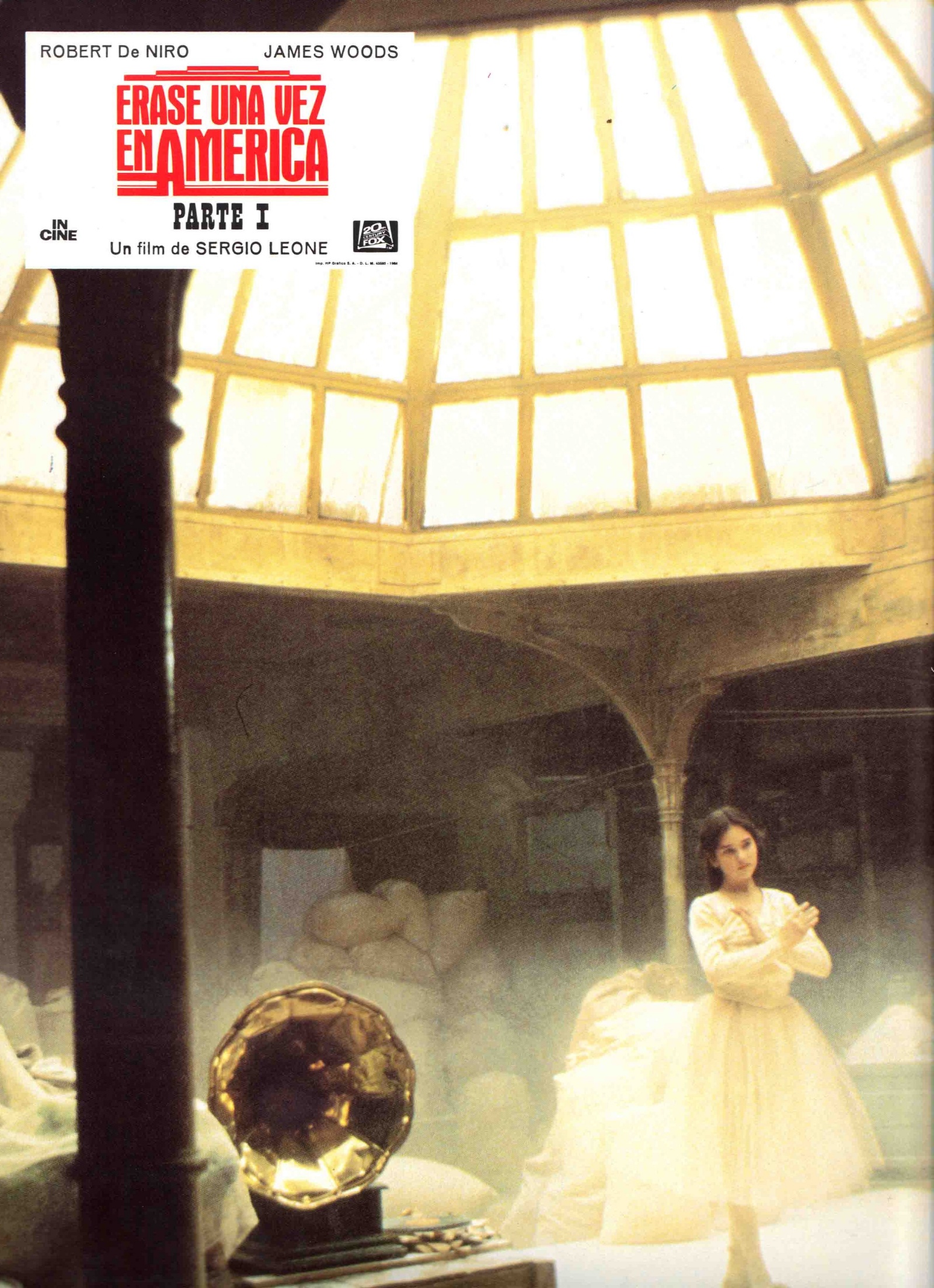
The young girl dancing in the dust of flour was the eternal dream of the boy. But he didn't deserve her, and in the end, his good brother got her. Maybe it was because he didn't understand women at all.
In the director's interview, he talked about "this is how gangsters express love." Most women are playthings for them, but some girls are beautiful and special white moonlight for them. However, their perspective on life determines that they don't actually know how to get along well with girls.
These tragic fates are determined by personality, but they also seem to be similar to the experiences of most male viewers. Looking further ahead, people are not born to be so paranoid. The root cause is the poor living environment since childhood.
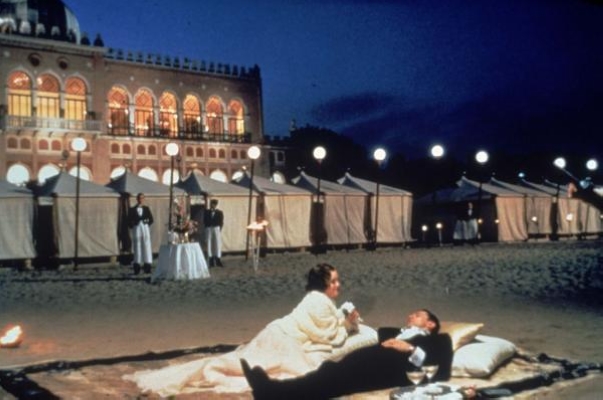
He courted the girl like a wealthy gentleman, but was rejected. He then raped her in the car. It was very heartbreaking.
Looking back at the teenage years when the protagonists grew up, they lived in the slums under the law of the jungle. Whoever was stronger was the boss. They learned to use street tricks to seek benefits for themselves very early. Cheating, kidnapping and robbery were commonplace, and committing crimes was no big deal. They didn't know that these were actually filthy and despicable behaviors. In this process, they only valued friendship, love, and people's striving for progress, which is indeed beautiful.
The part about childhood described in Once Upon a Time in America is about an hour long. If you look at it alone, it is an extremely delicate children's play. For example, a little boy who seems to be underdeveloped learns to use cream cakes to exchange for sex with slightly older underage girls. It is simply horrifying. But while waiting, he couldn't bear the temptation of delicious food, so he tasted a mouthful of cream, and then another mouthful, and finally ate the whole cake himself. There is a real childlike interest here.
Obviously, the children do not understand what is wrong with their actions, and they cannot even distinguish what they want. These innocent and dreamy states will make the audience feel sympathy for these children.
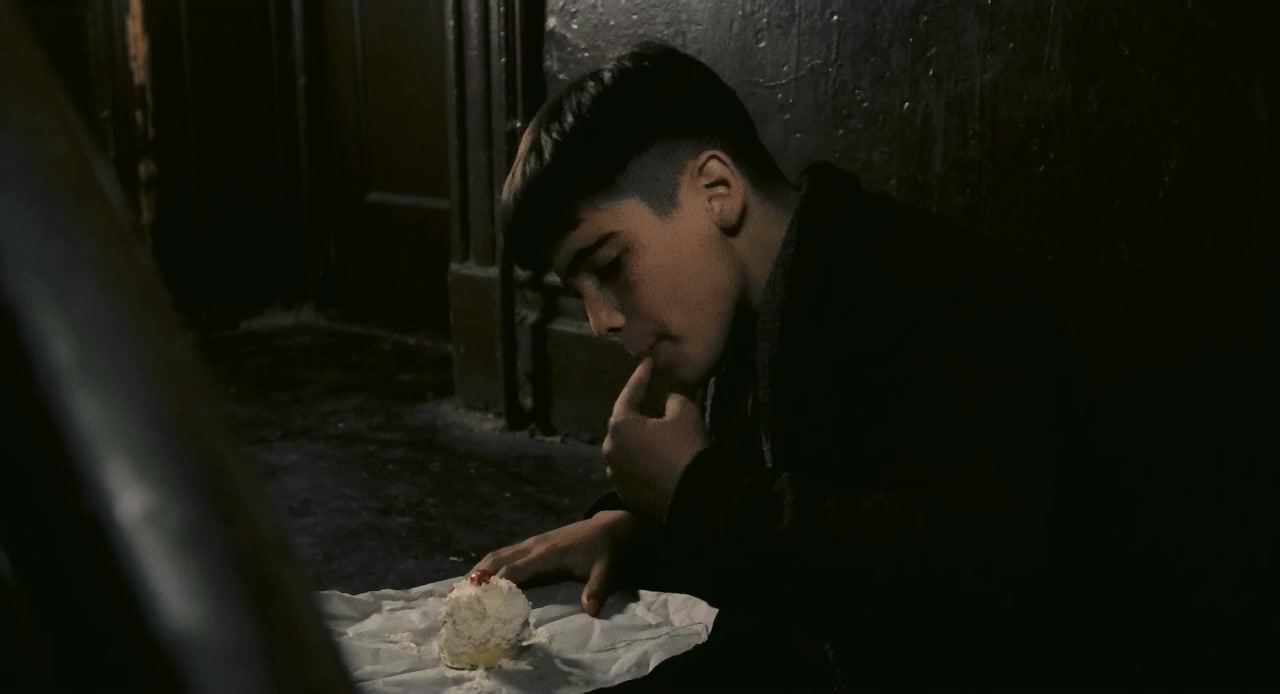
Children want food more. Do men really understand what they want? Not necessarily.
"A man is a boy until he dies" does not mean that the protagonist does not need to be responsible for the crimes he committed, but that they have never grown up and do not know how to live a meaningful life. They just go with the flow, have fun like most ordinary people, and do whatever it takes to get more money in exchange for social status and to satisfy their ambitions, only to find that they have nothing left in the end.
To put it in a broader sense, just like the "American Dream" that promotes success and wealth, these are all meaningless scams and myths. What is left is the garbage truck that drives through the streets and crushes everything.
Most male viewers may not have figured this out. What do we want when we work hard for fame and fortune every day? But Noodles figured it out when he was in his twenties.
"Love" is fake, "friendship" is also fake. Take a puff of a cigarette and you will know that what you want will appear immediately.
The Godfather is like a diary on the Little Red Book, representing an imaginary materialistic lifestyle. But Once Upon a Time in America says that these things are meaningless in the first place. You think you have found them, but it is just an illusion and it is gone in the blink of an eye.
The background of "Once Upon a Time in America" is very sad. It is not about America or social issues, but about everyone's life.
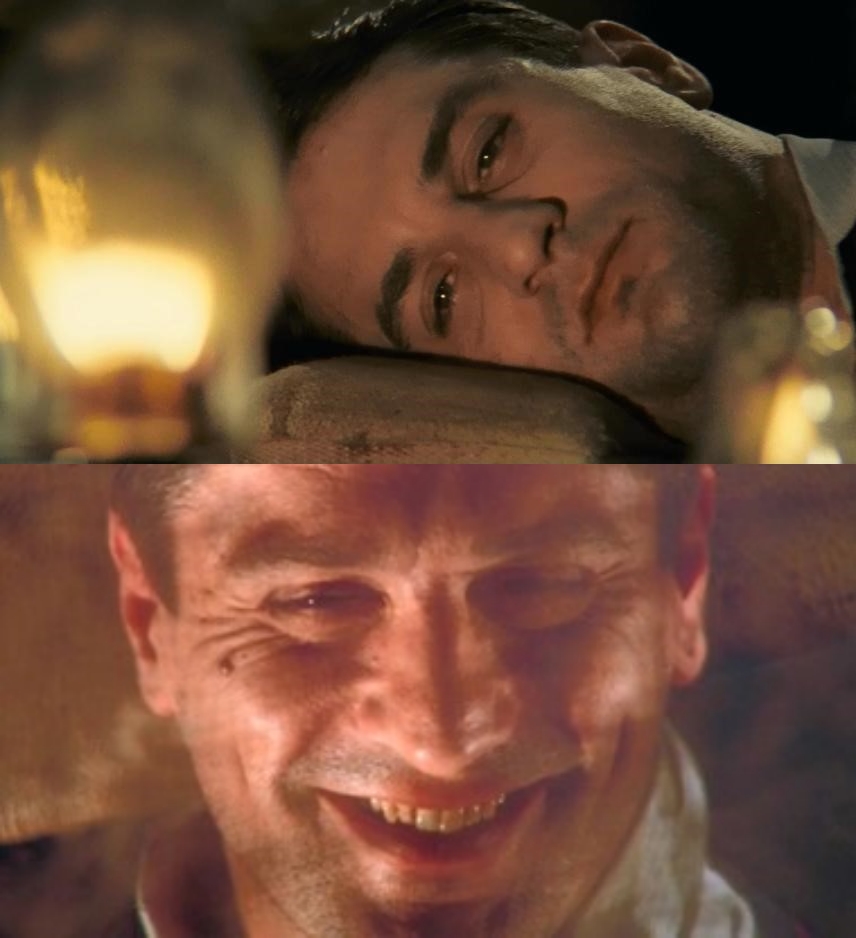
The film ends with a famous smile in film history. What is he laughing at? I don't know.
